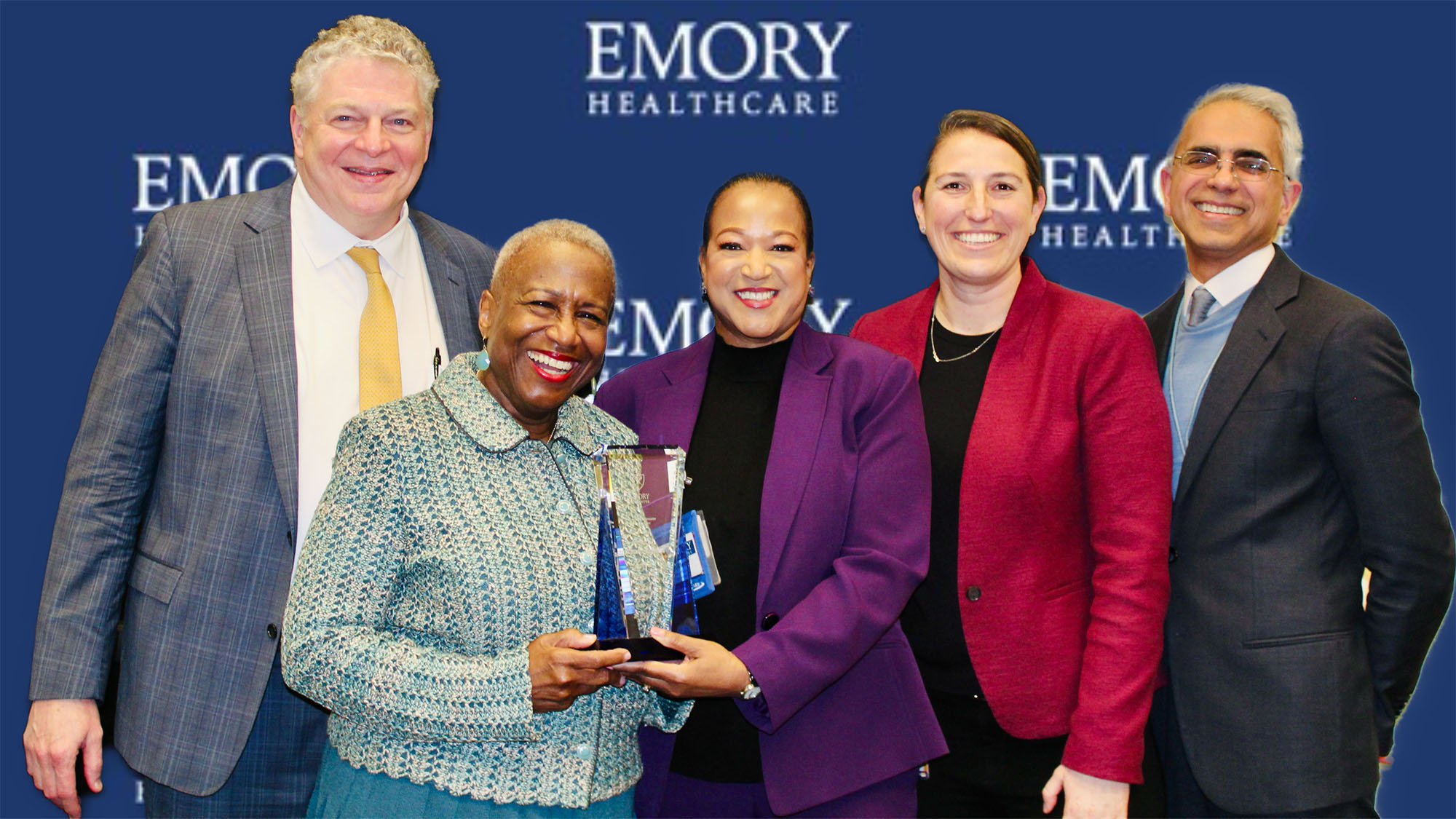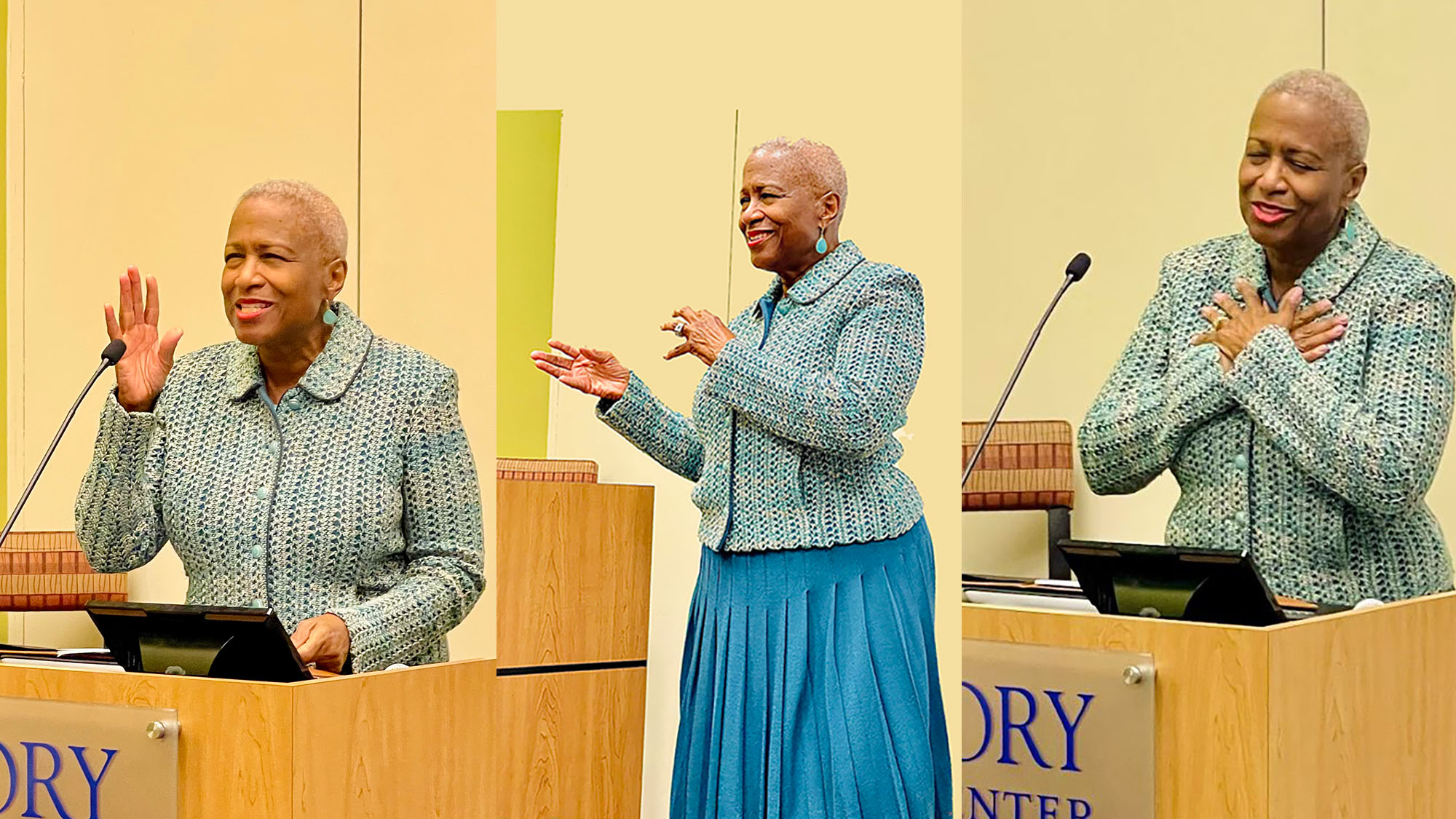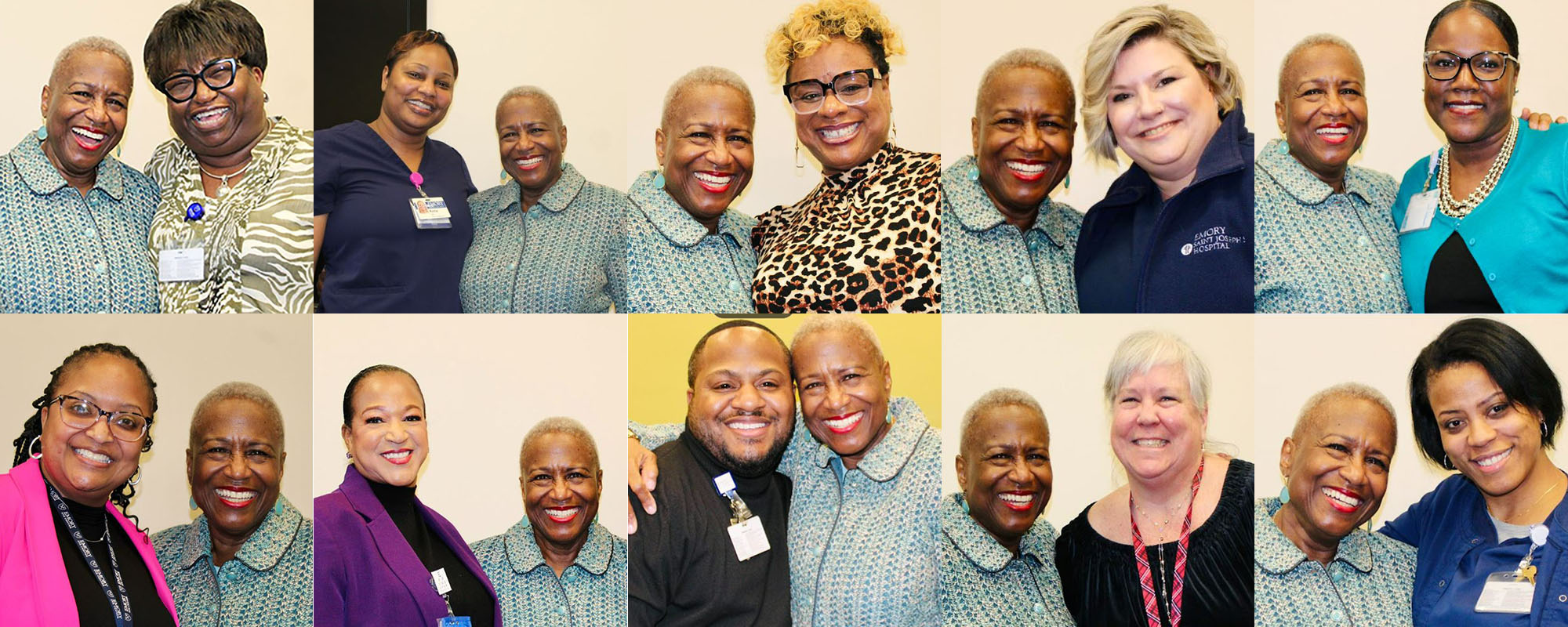Monica Kaufman-Pearson widens Emory Eye Center's focus on diversity

On Friday, February 9, Emory Eye Center took a break from eyesight to widen our vision.
Leading that journey was Atlanta media icon and community advocate Monica Kaufman Pearson, whose talk, “Letting Diversity Encourage Us” challenged clinicians, residents, staff, and administrators to rethink their approach to workplace diversity.
“Diversity really is a thing of beauty,” Pearson said, referencing the daffodils, cherry blossoms, chirping birds and buzzing insects that flood our senses every spring. “This diversity not only makes a pretty picture but also a peaceful scene. Everything is different, yet everything works in harmony. Diverse, yet dependent.”
Applied to human affairs, she said, this simple concept encounters its biggest obstacle in fear. “There is beauty in nature and also in people, but sometimes it’s hard to see because of fear. We are afraid of new ideas that we think will make us look outdated, or we’re stuck in a rut of ‘That’s the way we always did it.’”
Pearson’s trademark smile invited listeners to get out of that rut, using a tool we already possess: curiosity. If we ask more questions of a situation, we might find there’s more than one answer.
“The more we know about others, the better we are. We remove that veil of secrecy and open the door to understanding. When you truly understand why people do what they do, why they dress the way they dress, then you aren’t as judgmental. You might find they are curious about your habits, too.”
Pearson encouraged listeners to find opportunities for these perspective-changing conversations in their every day social interactions. The more low-key, the better. She laughed as she shared a personal example:
“My roommate in college was a white female. And she just couldn’t understand how my kinky hair went from kinky to straight… I couldn’t understand why this child was throwing her head over an ironing board and ironing her hair…so we talked about it. We laughed about it. And she ended up using my straightening comb more than I would have wanted."
[laughter]
"But a simple question about hair opened up a conversation about a lot of other things.”
Those 'other things' include the workplace, she said, where embracing diversity is not simply a great ideal; it’s a critical component of success.
“’Diversity is written into the DNA of American life,’” she said, quoting journalist Joseph Klein. “”Any institution that lacks a rainbow array has come to be seen as diminished, if not diseased.’”
On this point, she praised the Emory Eye Center for embracing a wide variety of languages, lifestyles, and culture in its patient services and hiring practices. But she didn't imply that our work was done.
Pearson reminded the audience to think broadly about what’s included in their own workplace rainbow: disability, ethnicity, nationality, sexual preference and more. She challenged them to constantly expand their view. It’s great to celebrate Black History Month, for instance, but what about Hispanic History Month or Asian History Month? And, do we ask our colleagues who speak other languages to teach us some words or tell us about their customs?
Work cultures that actively consider these questions will benefit, she said.
“When people outside your comfort zone see people like themselves inside Emory, working here, they begin to trust you more because you are showing them respect and opportunity,” she said. “Diversity, today, can make or break a business.”
Vigilance is key if diversity is to flourish, but it needn't be heavy-handed. More than once, Pearson gently reminded listeners to interrupt rigid thinking simply by asking more questions. For instance, maybe instead of Christmas, it’s time to consider a Kwanza or Hannukah celebration, she suggested. Or take some time to explain Ramadan so everyone can better understand their Muslim colleagues. And why assume that colleagues from a different tradition don’t want to decorate the Christmas tree? Ask them and see what you find out.
“If [your colleague] says ‘no’ to your request because it’s against their religious principles, respect them, without getting bent out of shape. Ask them what they can participate in to be a part of the team. And ask people to sit down and have lunch with you…no segregation at the lunch table please.”
-Kathleen E. Moore



